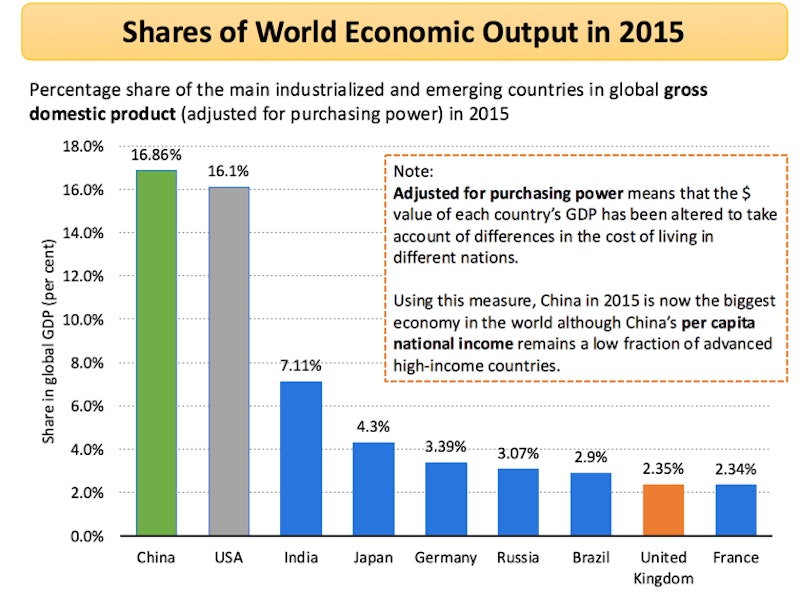Study Notes
What is Globalisation?
- Level:
- A-Level
- Board:
- AQA, Edexcel, OCR, IB, Eduqas, WJEC
Last updated 22 Mar 2021
The OECD defines globalisation as
“The geographic dispersion of industrial and service activities, for example research and development, sourcing of factor inputs, production and distribution, and the cross-border networking of companies, for example through joint ventures and the sharing of assets.”
In terms of your studies of global business, it is important to understand that:
- Globalisation is a process in which economies have become increasingly integrated and inter-dependent
- Globalisation is dynamic rather than an end state
- Globalisation is not inevitable – it can reverse, indeed the growth of world trade in goods and services slowed in recent years following the global financial crisis
Key Characteristics of Globalisation
Globalisation is a process of deeper integration between countries and regions of the world involving:
1. Greater trade across borders in goods and services
2. An increase in transfers of capital including the expansion of foreign direct investment (FDI) by transnational companies (TNCs) and the rising influence of sovereign wealth funds. Fifty-one of the largest economies in the world are corporations. The top 500 TNCs account for nearly 70% of world trade.
3. The development of global brands that serve markets in lower, middle and higher-income countries
4. Greater use of outsourcing and offshoring of production. The classic example is the iPhone which is part of a complex global supply chain. The product was conceived and designed in Silicon Valley in the USA and the software enhanced by engineers working in India. Most iPhones are assembled in China and Taiwan.
5. High levels of labour migration both within and between countries
6. New nations joining the trading system, for example Russia joined the World Trade Organisation (WTO) in 2012. The latest countries to join the WTO are Yemen (2014), Seychelles (2015) , Kazakhstan (2015) and Afghanistan (2016)
7. A shift in the balance of economic and financial power from developed to emerging economies and markets – i.e. a change in the centre of gravity in the world economy
8. Increasing spending on capital investment, innovation and infrastructure across large parts of the world
9. Globalisation is a process of making the world economy more connected and inter-dependent
10. Many industrialising (emerging) countries are winning a rising share of world trade and their economies are growing faster than developed nations. Emerging and developing countries now account for more than 57% of global GDP adjusted for purchasing power according to 2015 data published by the IMF. The 28-nation European Union has a share of global GDP of less than 17%.


You might also like
Trading Blocs - ASEAN Economic Community
Study Notes

Home and Away - Offshoring / Reshoring Lesson Resource
9th September 2016
Globalisation vs. Localisation
17th May 2017
Offshoring (Operations Management)
Topic Videos
Doing business in a customs union
25th April 2018
